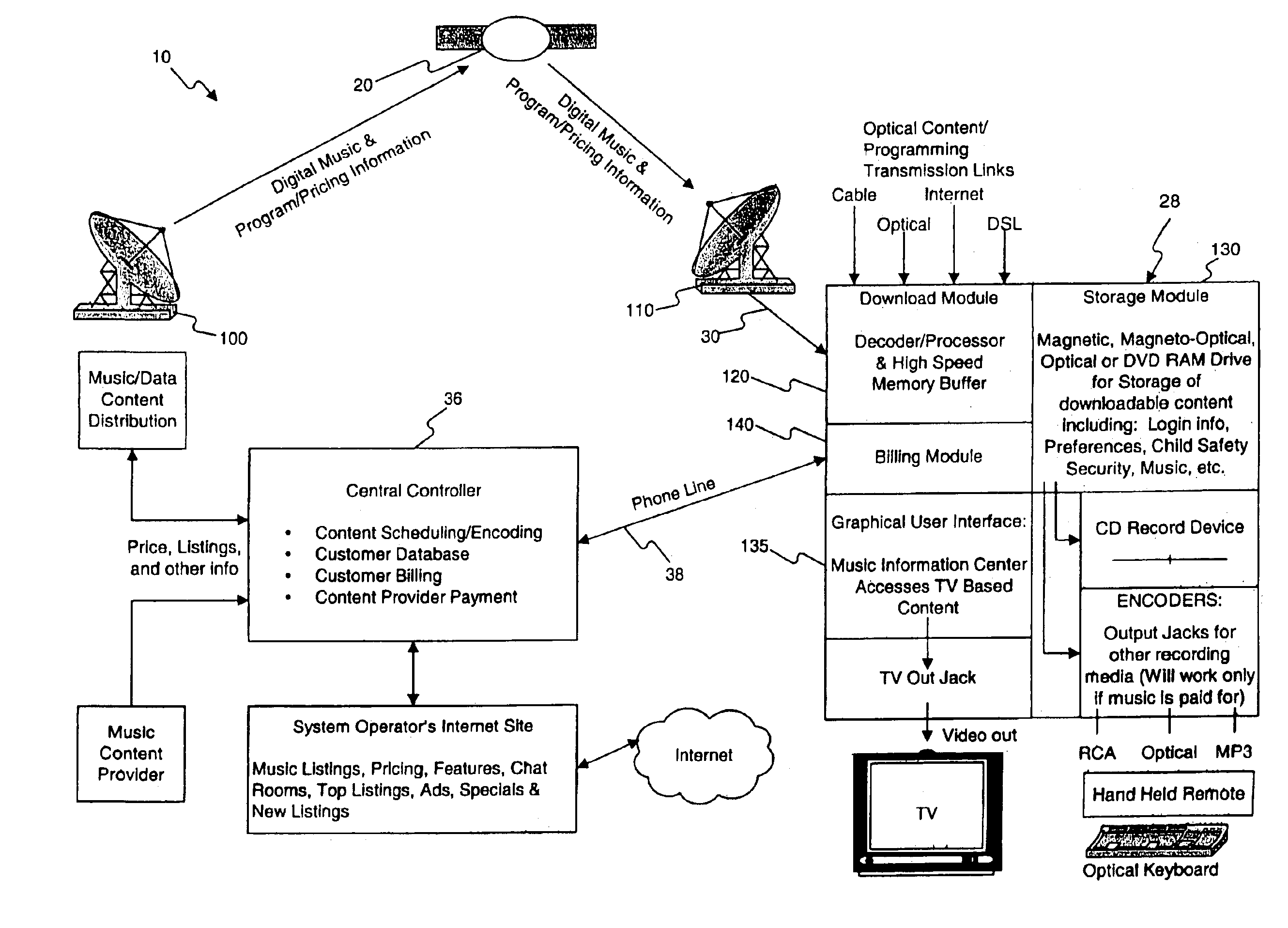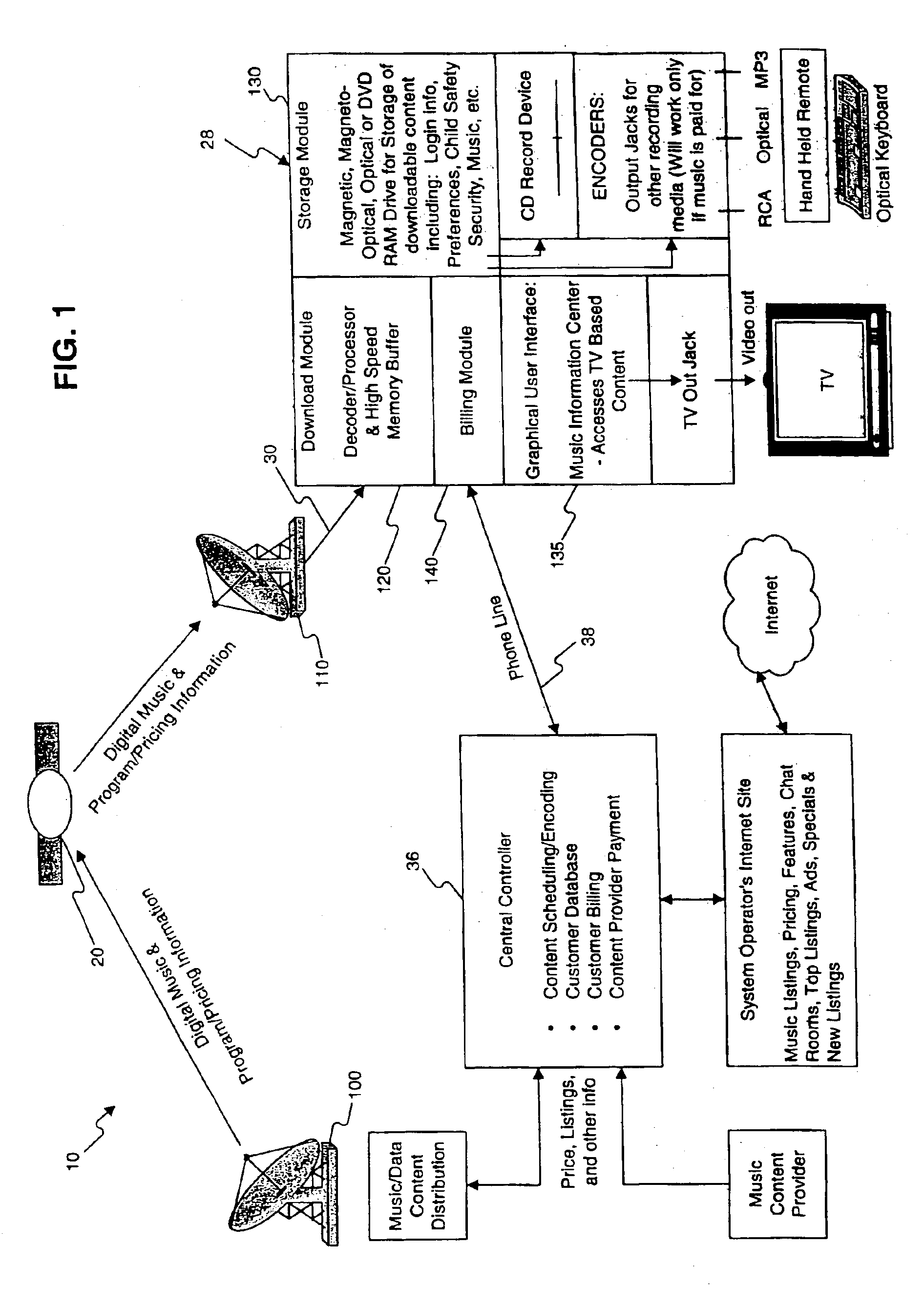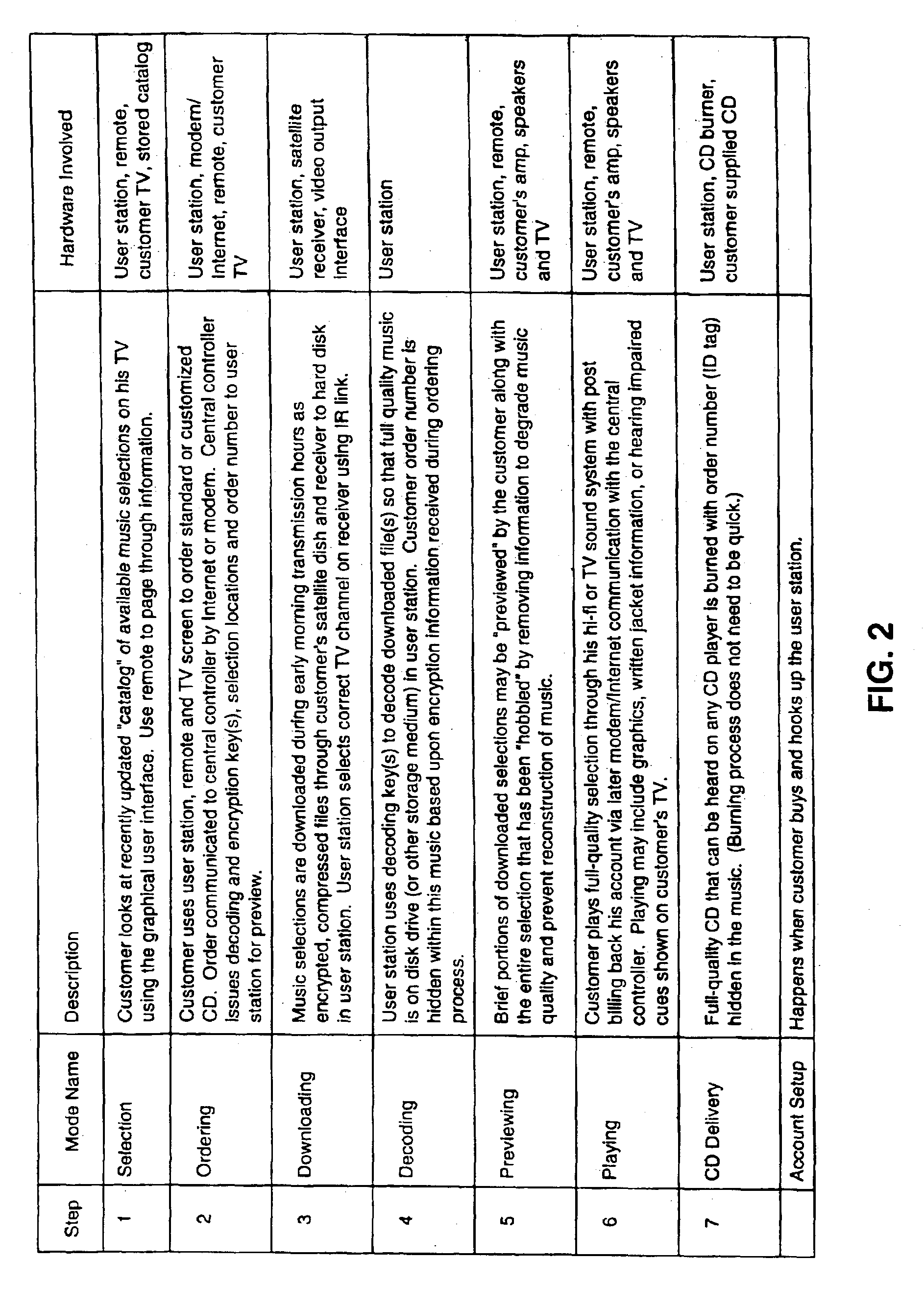Music distribution systems
a technology for music distribution and systems, applied in the field of music distribution, can solve the problems of high labor costs, high capital outlays, and add greatly to the retail price of music recordings, and achieve the effects of reducing costs, increasing income base, and high security
- Summary
- Abstract
- Description
- Claims
- Application Information
AI Technical Summary
Benefits of technology
Problems solved by technology
Method used
Image
Examples
Embodiment Construction
[0041]While the present invention will be described more fully hereinafter with reference to the accompanying drawings, in which aspects of the preferred manner of practicing the present invention are shown, it is to be understood at the outset of the description which follows that persons of skill in the appropriate arts may modify the invention herein described while still achieving the favorable results of this invention. Accordingly, the description which follows is to be understood as being a broad, teaching disclosure directed to persons of skill in the appropriate arts, and not as limiting upon the present invention.
1. The Overall Music Distribution System, Generally
[0042]Referring to FIG. 1, there is shown a simple schematic of one embodiment of a music distribution system 10 of the invention. System 10 utilizes direct broadcast satellite (DBS) transmission via satellite 20 as the means for blanket transmitting encoded data, either in real time or in time compressed format (...
PUM
| Property | Measurement | Unit |
|---|---|---|
| period of time | aaaaa | aaaaa |
| diameter | aaaaa | aaaaa |
| time | aaaaa | aaaaa |
Abstract
Description
Claims
Application Information
 Login to View More
Login to View More - R&D
- Intellectual Property
- Life Sciences
- Materials
- Tech Scout
- Unparalleled Data Quality
- Higher Quality Content
- 60% Fewer Hallucinations
Browse by: Latest US Patents, China's latest patents, Technical Efficacy Thesaurus, Application Domain, Technology Topic, Popular Technical Reports.
© 2025 PatSnap. All rights reserved.Legal|Privacy policy|Modern Slavery Act Transparency Statement|Sitemap|About US| Contact US: help@patsnap.com



